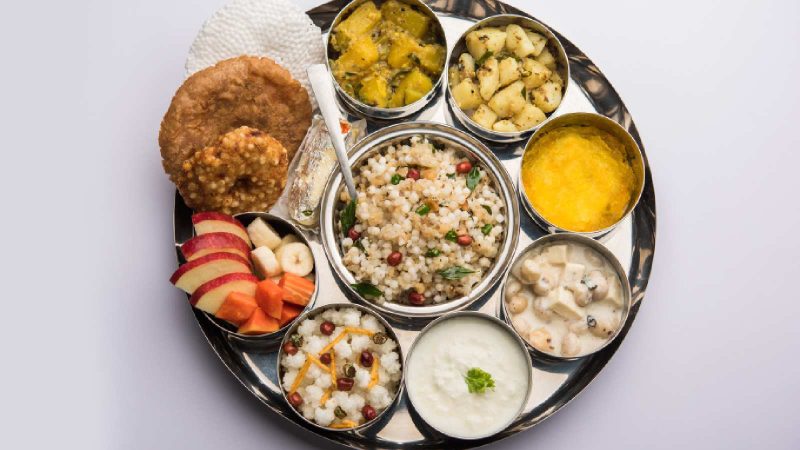Introduction
Navratri is a period of nine days when several Indian women observe a fast by eating only a certain set of foods. However, one common issue that arises during fasting is acidity. As women prepare to observe the Navratri fast from October 15 to 24 this year, it is important to take care of what they eat to prevent acidity. In this article, we will discuss how to avoid acidity during fasting this Navratri.
What is Fasting?
Fasting is the voluntary abstention from food or certain types of food for a specific period. It is practiced for various reasons, including religious, spiritual, or health purposes. During fasting, people refrain from consuming regular meals and often limit their intake to specific foods or liquids. For instance, during Navratri, certain foods like meat, lentils, alcohol, and wheat flour are eliminated from the diet, and vegetables such as potatoes, carrots, and cucumber are consumed instead.
How Fasting Affects Your Health
Fasting can have both positive and negative effects on your health. Short-term fasting may improve insulin sensitivity, promote weight loss, and support cellular repair. However, prolonged or extreme fasting can lead to nutrient deficiencies and muscle loss. The impact of fasting on your health depends on the type and duration of fasting.
How to Avoid Acidity During Fasting
Fasting can sometimes lead to acidity or heartburn due to increased stomach acid production on an empty stomach. This can be worsened by consuming acidic or spicy foods during non-fasting hours and irregular eating patterns. Here are some tips to avoid acidity during fasting:
Choose non-acidic foods
Opt for non-acidic foods like fruits, vegetables, and whole grains during non-fasting hours. Fruits such as watermelon, papaya, and banana can be consumed while fasting.
Stay hydrated
Drinking an adequate amount of water can help with weight loss, satiety, and maintaining stomach pH to prevent acidity.
Avoid spicy foods
Avoid consuming spicy and fried foods while fasting, as they can trigger acidity.
Have small and frequent meals
Instead of eating large meals in one go, opt for small and balanced meals more frequently to prevent overeating and acidity.
Consider antacids
If acidity becomes problematic, over-the-counter antacids may provide relief. However, it is important to consult a doctor before using them regularly.
Healthy Ways to Do Fasting During Navratri
When observing the Navratri fast for nine days, it is important to keep the following tips in mind:
- Include a variety of foods like fruits, vegetables, dairy, and nuts to ensure you get essential nutrients.
- Drink plenty of water and herbal teas to prevent dehydration during fasting.
- Practice portion control to avoid overeating when breaking the fast.
- Minimize consumption of deep-fried and high-fat foods.
- Plan balanced meals that provide energy and keep you full during fasting hours.
However, it is important to consult with a doctor before starting any fasting regimen, especially if you have underlying health conditions, to ensure it is safe and suitable for you.









